-
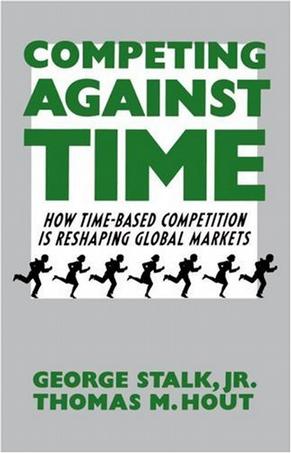
Competing Against Time
Today, time is the cutting edge. In fact, as a strategic weapon, contend George Stalk, Jr., and Thomas M. Hout, time is the equivalent of money, productivity, quality, even innovation. In this path-breaking book based upon ten years of research, the authors argue that the ways leading companies manage time—in production, in new product development, and in sales and distribution—represent the most powerful new sources of competitive advantage. With many detailed examples from companies that have put time-based strategies in place, such as Federal Express, Ford, Milliken, Honda, Deere, Toyota, Sun Microsystems, Wal-Mart, Citicorp, Harley-Davidson, and Mitsubishi, the authors describe exactly how reducing elapsed time can make the critical difference between success and failure. Give customers what they want when they want it, or the competition will. Time-based companies are offering greater varieties of products and services, at lower costs, and with quicker delivery times than their more pedestrian competitors. Moreover, the authors show that by refocusing their organizations on responsiveness, companies are discovering that long-held assumptions about the behavior of costs and customers are not true: Costs do not increase when lead times are reduced; they decline. Costs do not increase with greater investment in quality; they decrease. Costs do not go up when product variety is increased and response time is decreased; they go down. And contrary to a commonly held belief that customer demand would be only marginally improved by expanded product choice and better responsiveness, the authors show that the actual results have been an explosion in the demand for the product or service of a time-sensitive competitor, in most cases catapulting it into the most profitable segments of its markets. With persuasive evidence, Stalk and Hout document that time consumption, like cost, is quantifiable and therefore manageable. Today's new-generation companies recognize time as the fourth dimension of competitiveness and, as a result, operate with flexible manufacturing and rapid-response systems, and place extraordinary emphasis on R&D and innovation. Factories are close to the customers they serve. Organizations are structured to produce fast responses rather than low costs and control. Companies concentrate on reducing if not eliminating delays and using their response advantage to attract the most profitable customers. Stalk and Hout conclude that virtually all businesses can use time as a competitive weapon. In industry after industry, they illustrate the processes involved in becoming a time-based competitor and the ways managers can open and sustain a significant advantage over the competition. -
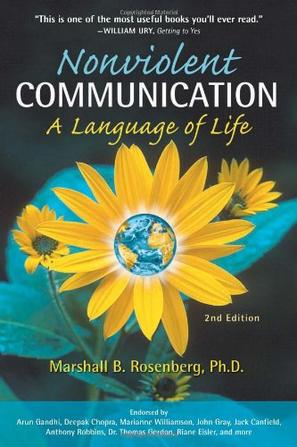
Nonviolent Communication
An enlightening look at how peaceful communication can create compassionate connections with family, friends, and other acquaintances. The book uses stories, examples, and sample dialogues to provide solutions to communication problems both at home and in the workplace. Guidance is provided on identifying and articulating feelings and needs, expressing anger fully, and exploring the power of empathy in order to speak honestly without creating hostility, break patterns of thinking that lead to anger and depression, and communicate compassionately. These non-violent communication skills are fully explained and can be applied to personal, professional, and political differences. Included in this new edition is information on how to compassionately connect with oneself. -
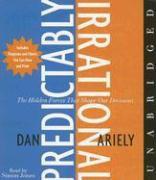
The Predictably Irrational CD
Why do our headaches persist after taking a one-cent aspirin but disappear when we take a 50-cent aspirin? Why does recalling the Ten Commandments reduce our tendency to lie, even when we couldn't possibly be caught? Why do we splurge on a lavish meal but cut coupons to save twenty-five cents on a can of soup? Why do we go back for second helpings at the unlimited buffet, even when our stomachs are already full? And how did we ever start spending $4.15 on a cup of coffee when, just a few years ago, we used to pay less than a dollar? When it comes to making decisions in our lives, we think we're in control. We think we're making smart, rational choices. But are we? In a series of illuminating, often surprising experiments, MIT behavioral economist Dan Ariely refutes the common assumption that we behave in fundamentally rational ways. Blending everyday experience with groundbreaking research, Ariely explains how expectations, emotions, social norms, and other invisible, seemingly illogical forces skew our reasoning abilities. Not only do we make astonishingly simple mistakes every day, but we make the same types of mistakes, Ariely discovers. We consistently overpay, underestimate, and procrastinate. We fail to understand the profound effects of our emotions on what we want, and we overvalue what we already own. Yet these misguided behaviors are neither random nor senseless. They're systematic and predictable—making us predictably irrational. From drinking coffee to losing weight, from buying a car to choosing a romantic partner, Ariely explains how to break through these systematic patterns of thought to make better decisions. Predictably Irrational will change the way we interact with the world—one small decision at a time. -
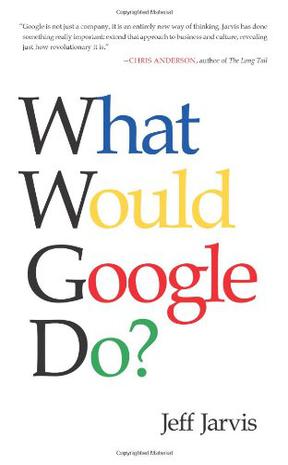
What Would Google Do?
A bold and vital book that asks and answers the most urgent question of today: What Would Google Do? In a book that's one part prophecy, one part thought experiment, one part manifesto, and one part survival manual, internet impresario and blogging pioneer Jeff Jarvis reverse-engineers Google—the fastest-growing company in history—to discover forty clear and straightforward rules to manage and live by. At the same time, he illuminates the new worldview of the internet generation: how it challenges and destroys, but also opens up vast new opportunities. His findings are counterintuitive, imaginative, practical, and above all visionary, giving readers a glimpse of how everyone and everything—from corporations to governments, nations to individuals—must evolve in the Google era. Along the way, he looks under the hood of a car designed by its drivers, ponders a worldwide university where the students design their curriculum, envisions an airline fueled by a social network, imagines the open-source restaurant, and examines a series of industries and institutions that will soon benefit from this book's central question. The result is an astonishing, mind-opening book that, in the end, is not about Google. It's about you. -
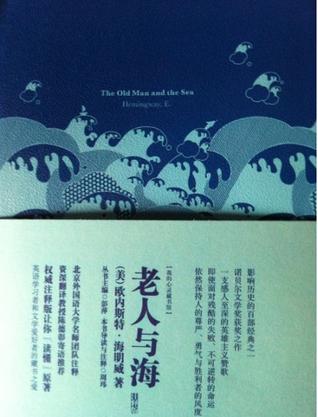
老人与海
《我的心灵藏书馆:老人与海(注释版)》内容简介:古巴老渔夫圣地亚哥在连续八十四天没捕到鱼的情况下,终于独自钓上了一条大马林鱼,但这鱼实在太大,把他的小船在海上拖了三天才筋疲力尽,被他杀死了绑在小船的一边,在归程中一再遭到鲨鱼的袭击,最后回港时只剩下鱼头鱼尾和一条脊骨。这虽然是一个故事简单、篇幅不大的作品,但含义丰富,很多教师把它作为英雄主义教育的教材,推荐给广大学生,使之成为经久不衰的畅销书。 海报: -
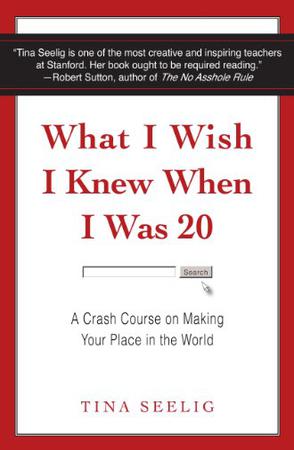
What I Wish I Knew When I Was 20
Major life transitions such as leaving the protected environment of school or starting a new career can be daunting. It is scary to face a wall of choices, knowing that no one is going to tell us whether or not we are making the right decision. There is no clearly delineated path or recipe for success. Even figuring out how and where to start can be a challenge. That is, until now. As executive director of the Stanford Technology Ventures Program, Tina Seelig guides her students as they make the difficult transition from the academic environment to the professional world, providing tangible skills and insights that will last a lifetime. Seelig is an entrepreneur, neuroscientist, and popular teacher, and in What I Wish I Knew When I Was 20 she shares with us what she offers her students—provocative stories, inspiring advice, and a big dose of humility and humor. These pages are filled with fascinating examples, from the classroom to the boardroom, of individuals defying expectations, challenging assumptions, and achieving amazing success. Seelig throws out the old rules and provides a new model for reaching our highest potential. We discover how to have a healthy disregard for the impossible, how to recover from failure, and how most problems are remarkable opportunities in disguise. What I Wish I Knew When I Was 20 is a much-needed book for everyone looking to make their mark on the world.